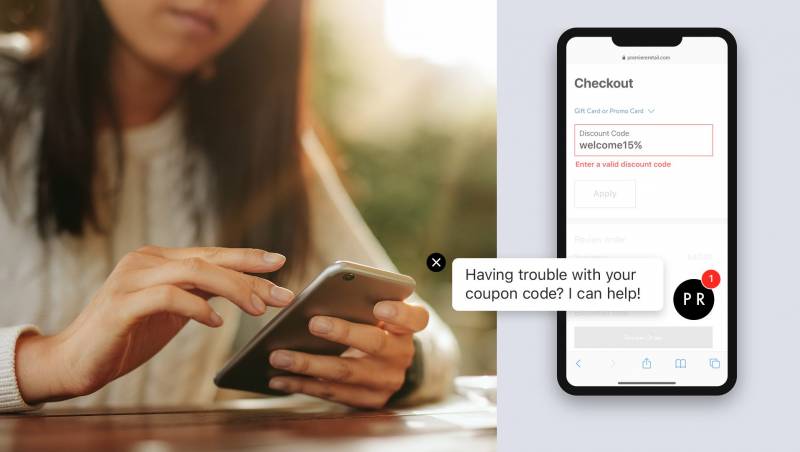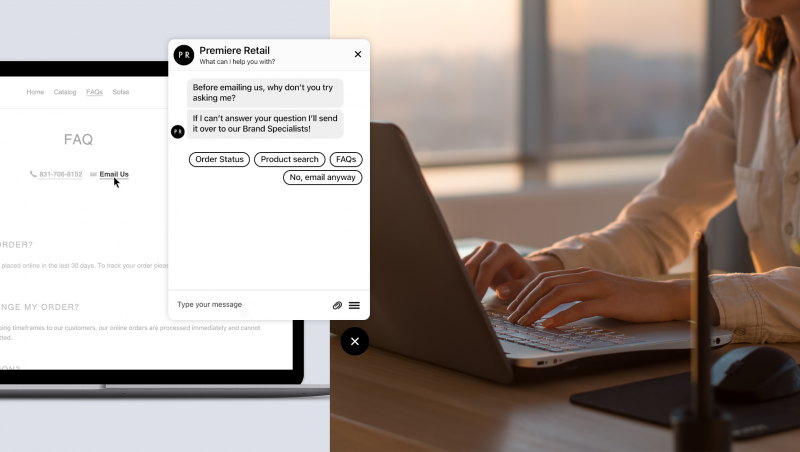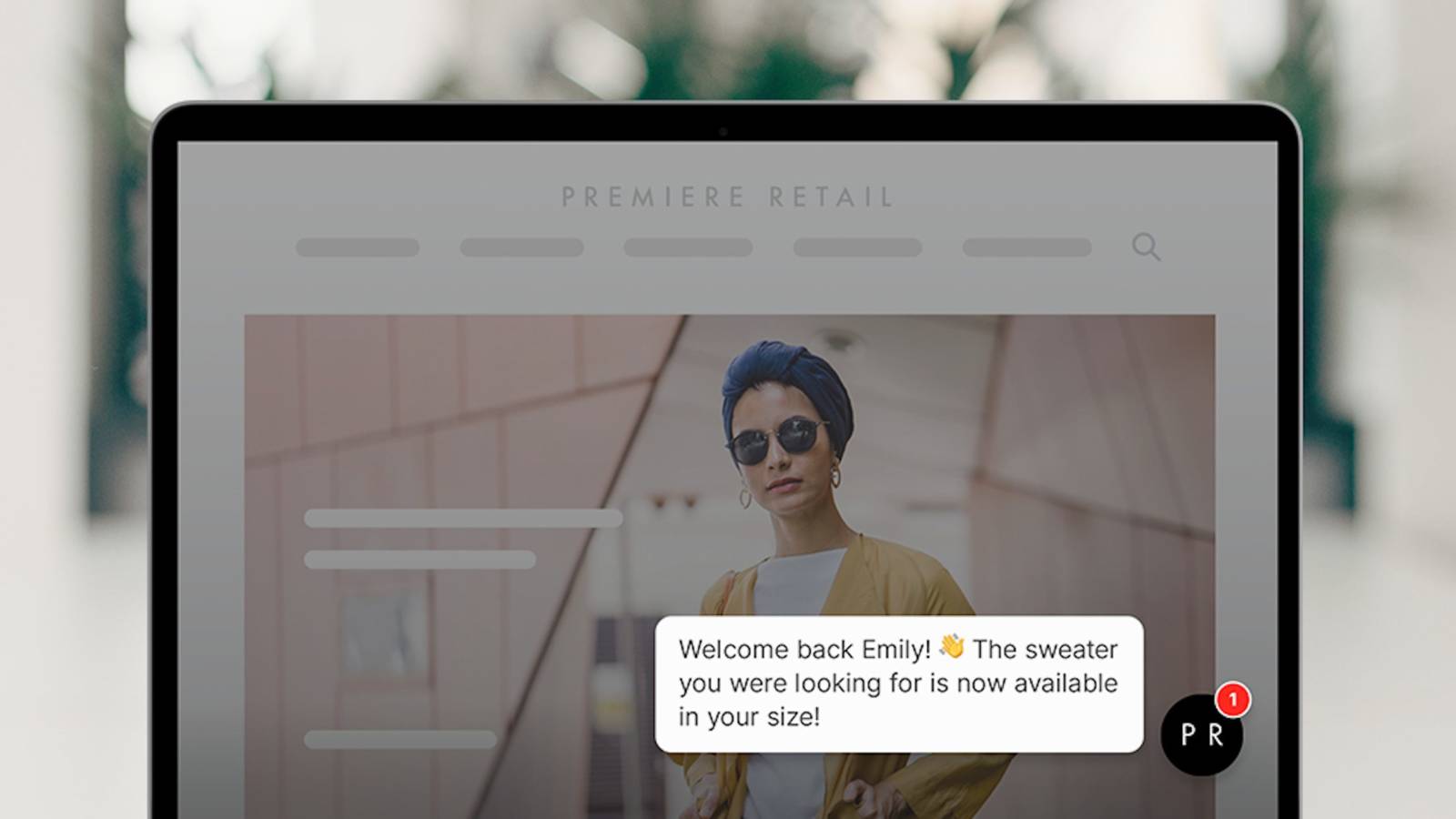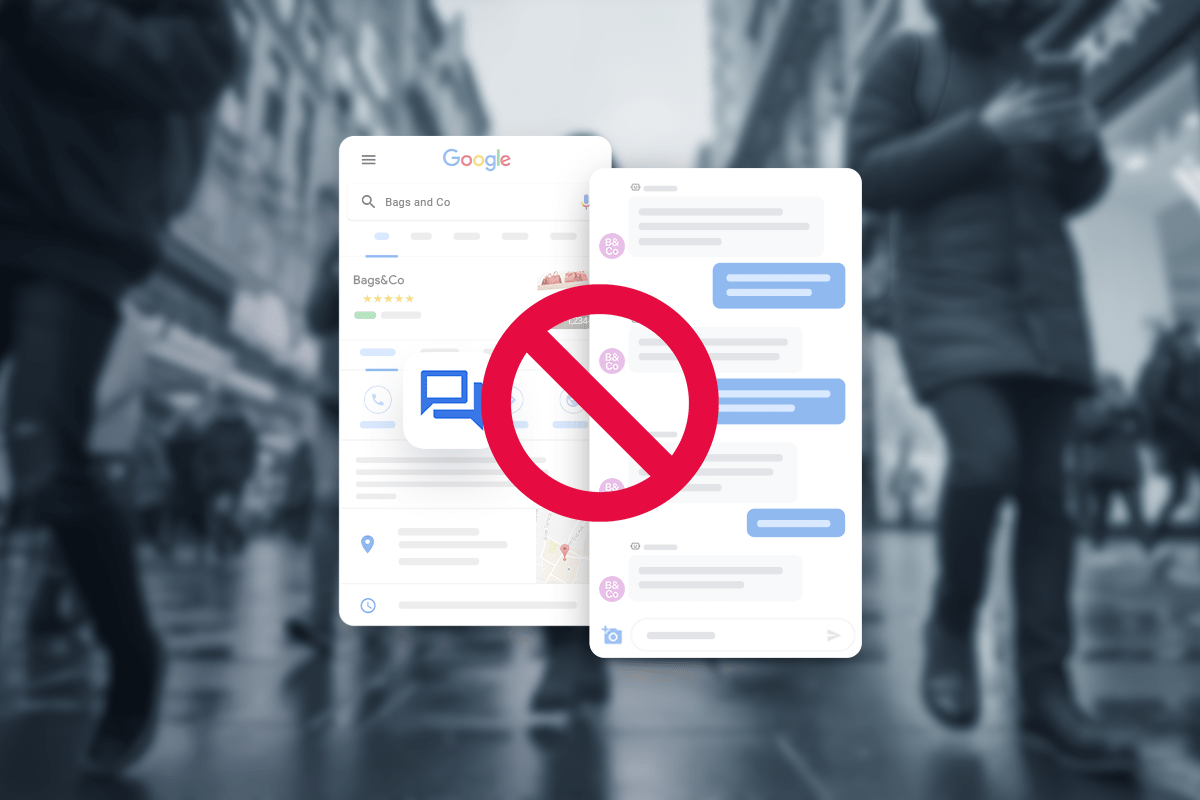Wouldn’t it be great if your brand could offer personalized web chat assistance to customers at exactly the right point of their customer journey? Contextual engagements like this could assist customers on specific pages when they have a coupon problem, can’t find the right product, or have a question about their order.
We’ve got some great news for you. Proactive Web Actions are now part of Quiq. Let’s take a deeper dive into this powerful feature.
What are Proactive Web Actions?
Proactive Web Actions are personalized chat engagements that help customers based on where they are in their shopping journey and what they are trying to achieve. Web Actions work by leveraging information about where customers are currently on your site, as well as any additional data you may have on past customer engagements (such as their current order status, whether or not they’re part of a loyalty or rewards program, if they’ve recently abandoned a shopping cart, and more).
These data points can then be combined to create highly contextual web experiences. Customers on checkout pages almost certainly don’t have the same questions as those viewing a product category page and your web experience should react accordingly.
Why Proactive Web Actions?
Proactive Web Actions help:
- Support each online consumer based on their unique position in the customer journey
- Increase website’s conversion rates
- Improve the overall customer experience
Forrester has previously cited that 53% Of US online adults are likely to abandon online purchases if they can’t find a quick answer to their question. With Web Actions, brands can detect when shoppers are struggling to navigate product listings or finalize their checkout and proactively engage them with the support that directly applies to what they’re trying to do.
Additionally, while 80% of consumers are more likely to purchase when brands offer experiences that are personalized to them, the majority of chatbots today leverage the same generic messaging to initiate conversations with website visitors. Web Actions, however, account for consumers’ demand for personalization and only engage customers with messages that are crafted to help them as unique consumers.
Use Cases and Examples
While Web Actions can be applied to any number of scenarios, we’ve found that this feature can be most impactful when applied to the following use cases:
Addressing checkout issues
In the instance that a customer is struggling with a checkout flow, brands can leverage Web Actions to quickly engage the customer and proactively address any trouble they are experiencing.
There are numerous ways that brands can identify customers that are struggling to checkout like an unusually large amount of time a customer is spending on a checkout page or even based on a particular action the customer takes.
For example, eCommerce brands can use the Quiq platform to identify shoppers who are struggling to use their promo codes onsite.
With Web Actions, brands can engage those customers and offer immediate assistance.

Helping customers self-serve, faster
For shoppers seeking customer support, their first instinct might be to visit your website’s support page in search of a call center phone number or an email address they can reach out to.
Unfortunately for both your customers and agents, these channels are typically not the most effective way to quickly resolve questions and inquiries. Customers may have to wait days for an email response or wait on hold for 90+ minutes because agents can only handle one call at a time.
With Web Actions, brands reroute customers looking for email or phone support to a self-serve automated assistant.
When a customer clicks the “email us” button, Web Actions can proactively engage the customer and offer support through web chat instead, both of which often offer faster responses and resolution than a customer would receive over email.

Provide pre-purchase assistance
Web Actions are particularly impactful when it comes to increasing conversion rates and guiding website visitors to purchase. Quiq data has shown that visitors who chat with an automated assistant are about 3x more likely to purchase than those who don’t.
For example, when shoppers indicate that they’re struggling to find the right product by lingering on category pages, Web Actions can be triggered to offer support and help them find what they’re looking for.
All data on past customer interactions (like preferred price point) can be used to make highly personalized and contextualized product suggestions.

Transforming Web Chat with Enhanced Personalization
As consumers continue their transition to online shopping while leaning on messaging channels to replicate the personal touch of brick and mortar shopping, it’s crucial for eCommerce brands to offer personalized experiences. By deploying Web Actions, brands not only help customers get the answers they need faster, but also free up sales and service teams to focus on the most valuable customer interactions.
Want to learn more about how proactive Web Actions are transforming personalized online shopping? Contact one of Quiq’s conversation experts to discuss how to get started with proactive web actions.




